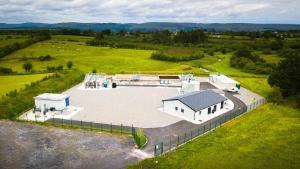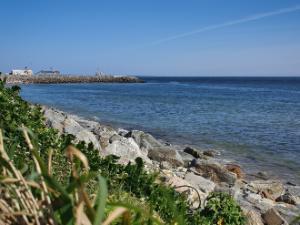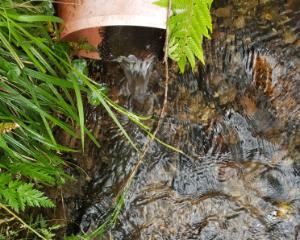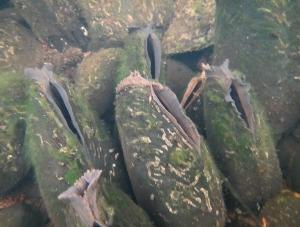
There are deficiencies in many public sewers and waste water treatment plants, due to a legacy of under-investment.
Consequently, waste water from some areas discharges into the environment without adequate treatment. It will not be possible to fix all these problems in the short term, and therefore Uisce Éireann must ensure that the resources that are available are directed where they are most needed. We have identified the priority urban areas where treatment must improve in order to resolve national environmental priorities.
You can see the full list of priority urban areas and the environmental issue at each area at this link. This also shows when and how Uisce Éireann plans to resolve the priority issue at each area. There is further information on the priority areas in the EPA’s latest Urban Waste Water Treatment Report.
The number of priority areas where treatment needs to improve has decreased from 148 in 2017 to 73 in 2024.
In 2023, treatment at 10 of Ireland’s 177 large urban areas failed to meet European Union standards set to protect the environment. The graph shows the number of areas that failed to meet the standards over the period 2017 to 2023.
Half (50%) of the waste water in Ireland’s 177 large urban areas was produced in the 10 towns and cities that failed the standards in 2023. The failure of Ringsend treatment plant to meet the standards is of particular concern because it treats waste water from a population equivalent of over 2 million.
In April 2024 untreated waste water (raw sewage) from the equivalent of approximately 40,000 people in 16 towns and villages still flowed into the environment every day.
Based on Uisce Éireann’s latest plans, six of these areas will be connected to treatment plants by the end of 2025 and all the remaining areas will have treatment in place by 2030.
The chart shows the number of areas that will still have no waste water treatment plant at the end of each year, based on the latest Uisce Éireann plans.
Thirty-four areas that were discharging raw sewage have been connected to treatment plants since 2014.

If waste water is not properly treated before it is released into the environment it can adversely impact the quality of rivers, lakes and coastal waters. The EPA is prioritising 34 areas where waste water is a significant pressure on inland and coastal waters at risk of pollution.
Improving treatment at these areas will help protect and improve the quality of the local environment, which will in turn support local communities, healthy ecosystems and a diverse range of plants and animals.

Ireland’s waste water collecting systems include thousands of kilometres of underground sewers and pumping stations that carry sewage from our homes and communities to treatment plants. In 2019 the Court of Justice of the European Union ruled that collecting systems serving some areas were inadequate. When a collecting system is inadequate it cannot retain all the waste water collected in the sewer and convey it for treatment.
Uisce Éireann must complete improvements on 6 priority collecting systems to bring the systems up to standard and resolve the issues highlighted by the Court.
--300x227.jpg)
Most of Ireland’s bathing waters meet or exceed the minimum required quality standards. However, waste water discharges contributed to a poor bathing water classification at three designated bathing waters in 2023.

The EPA is prioritising 12 towns and villages where waste water treatment must improve to protect freshwater pearl mussels that live in the rivers downstream of waste water discharges. The fresh water pearl mussel is a globally endangered mollusc that requires clean, fast flowing, well oxygenated rivers and a clean riverbed.
The mussels are declining both nationally and internationally due to deteriorating river quality. Pollution, for example from inadequately treated waste water, can be detrimental to the survival of new generations of mussels.